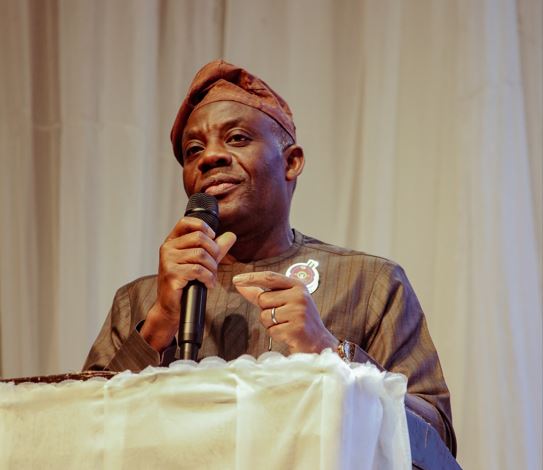The Federal Government is intensifying efforts to enhance infrastructure and manpower in the healthcare sector.
The Minister of State for Health and Social Welfare, Dr Tunji Alausa, announced this during the 65th Anniversary and Gala Night of the Nigeria Society of Physiotherapy (NSP) in Abuja on Thursday.
Alausa, who was represented by the Chief Medical Director of the National Hospital, Prof. Muhammad Mahmud, stated that the Federal Government is committed to funding the healthcare sector while also creating a conducive workspace for health workers.
He commended the NSP for its instrumental role in providing efficient services through practice, training, research, collaborations, advocacy, and policy development.
He called for public-private partnerships in the healthcare sector to complement the Federal Government’s efforts in building a better healthcare system for the country.
“Your efforts have significantly contributed to the overall improvement in healthcare, enhancing the quality of life for countless individuals.
“I commend your establishment of the Postgraduate Physiotherapy College (PPC), which has produced over 70 specialists in various physiotherapy fields.
“These skilled professionals have augmented the healthcare workforce, complementing government efforts to improve healthcare delivery.
“The Federal Government is intensifying efforts to enhance infrastructure and manpower in the healthcare sector,” he said.
The keynote speaker at the event, Prof. Sylvester Igaww, urged medical practitioners to continue improving their skills, particularly with the advancements brought about by Artificial Intelligence in the sector.
He emphasised that the ‘Japa Syndrome’ is detrimental to the healthcare sector, underscoring the need to address this issue.
Additionally, the President of NSP, Dr Oyinlola Odusanya, highlighted that the society had facilitated the establishment of the Postgraduate Physiotherapy College in Nigeria.
He explained that this body is responsible for training specialists with clinical competence to meet the demands of clients in an ever-changing world.
Odusanya also identified challenges faced by the society, particularly the devastating effects of brain drain on the profession.
“Over 65 per cent of physiotherapists trained in Nigeria practice abroad. In the last three years, over 2,000 physiotherapists have left the country, leaving less than 4,000 physiotherapists to manage a population of over 200 million.
“This development has weakened us as a group in terms of training and has reduced the number of experienced physiotherapists available to serve our various establishments,” he said.
NAN





















